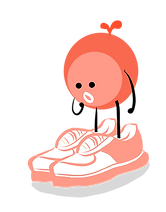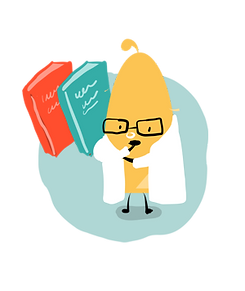Cognitive Behavioral Therapy
EMPOWER EMPATHY™ is created with professional Cognitive Behavioral Therapy and Play Therapy approaches that address the relationship between
thoughts, feelings, actions, and physiology
Thoughts Affect Emotions
Emotions Create Actions

Describe the scenario on the Card, even if it’s reading exactly what it says on the Card.
This is to train to “verbalize” and be more
self-aware of what is happening.
Recall the past and use the situations on the cards to connect to real life and clarify the essence of the problem. The event does not necessarily have to match the situation on the card. Think about it and see if you have had a similar experience.
STEP 1: THOUGHTS
QUESTIONS TO ASK:
-
What was your initial thought about this situation?
-
Did any memories or past experiences come to mind during this event?
-
Have you encountered any similar situations, even if they were in a different context?
-
What would happen if you applied the same thought process to a different scenario, like work or relationships?
-
If a friend came to you with this issue, what thoughts might you encourage them to consider?
STEP 3: ACTIONS
Explore how they handle things, their motivations and needs behind them. Make sure to guide with a "process-", "relationship-" and "solution-” based approach.
Try resolving social dilemma positively
with a growth mindset.
Try to find a win-win solution for all parties.
QUESTIONS TO ASK:
-
Do you think this person handled the situation as well as they could? Why or why not?
-
What is a “natural and instinctive response” might be?
-
Is this “instinctive response” socially appropriate? Why or why not?
-
How can you use this experience to guide your actions when facing unfamiliar challenges in the future?


Life Events

CORE
BELIEFS


STEP 2: FEELINGS
Pick at least 3 emotions related to each character in the scenario. There is no wrong answer.
Review all the emotion cards one by one to see which feeling better fits the situation when players have trouble understand a certain feeling or its meaning.
QUESTIONS TO ASK:
-
How do you think this situation makes this person feel? (Ask this question for each person on the card for different perspectives)
-
Can you name at least 3 emotions that this person might feel during that event?
-
Why did it make them feel this way?
-
Did the feelings change throughout the situation? If so, how?




Life Events
Actions Reinforces Thoughts
Click here
to PLAY the Game NOW!
"CBT is a time-sensitive, structured, present-oriented psychotherapy that has been scientifically tested and found to be effective in more than 2,000 studies for the treatment of many different health and mental health conditions."
"Considered a 'solutions-oriented' form of talk therapy, CBT rests on the idea that thoughts and perceptions influence behavior."
"CBT is based on a straightforward, common-sense model of the relationships among cognition, emotion, and behavior."
"CBT can be an effective tool — either alone or in combination with other therapies — to help anyone learn how to better manage stressful life situations."
"CBT has been demonstrated to be as effective as, or more effective than, other forms of psychological therapy or psychiatric medications."
"CBT involves identifying maladaptive thoughts and behaviors and implementing strategies to build healthier habits."
Learn More
About
CBT


